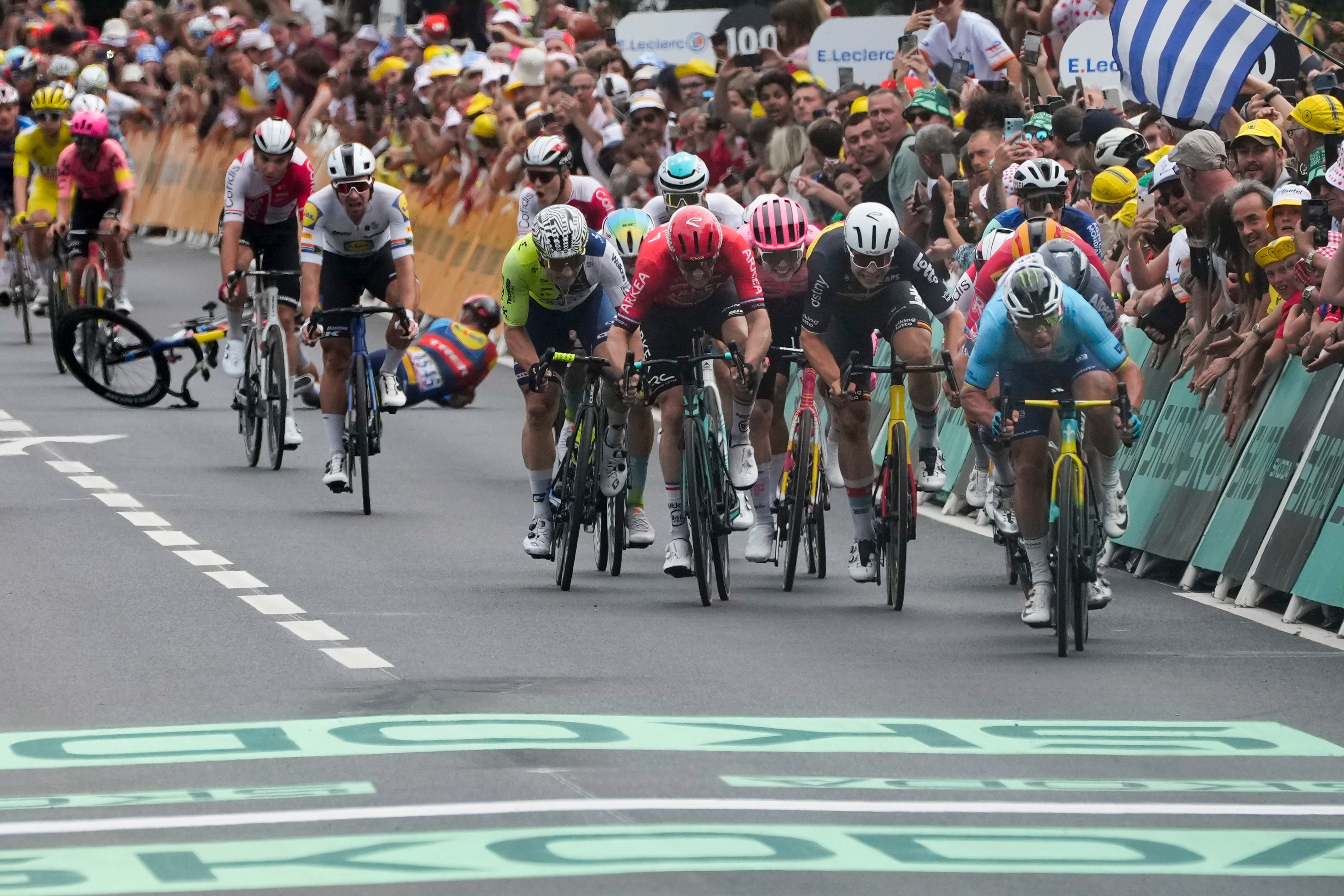Your support helps us to tell the story
From reproductive rights to climate change to Big Tech, The Independent is on the ground when the story is developing. Whether it’s investigating the financials of Elon Musk’s pro-Trump PAC or producing our latest documentary, ‘The A Word’, which shines a light on the American women fighting for reproductive rights, we know how important it is to parse out the facts from the messaging.
At such a critical moment in US history, we need reporters on the ground. Your donation allows us to keep sending journalists to speak to both sides of the story.
The Independent is trusted by Americans across the entire political spectrum. And unlike many other quality news outlets, we choose not to lock Americans out of our reporting and analysis with paywalls. We believe quality journalism should be available to everyone, paid for by those who can afford it.
Your support makes all the difference.
Mark Cavendish has revealed the key to his record-breaking 35th Tour de France stage win and the secrets to his sprint success.
The British rider surpassed the tally of Eddy Merckx during his farewell edition of the Tour in 2024, claiming a stunning win in Saint-Vulbas to close his career in style.
The Manxman secured his first stage victory in 2008 in Chateauroux, and believes the principles of mastering a sprint finish are unchanged.
And Cavendish feels that total commitment was key to his perfectly-timed surge to take victory.
“Once you get into the last [kilometere] in a bunch sprint, especially in the Tour, you have to keep moving forward,” Cavendish explained on the Geraint Thomas Cycling Club podcast. “That’s all I did really, it’s quite nice sprinting like that. Seeing things, I knew [Pascal] Ackermann would go, when I saw him I had to go, it helped your acceleration for the sprint.
“It’s what I’ve done, even as kids, learnt to race like that. The boys were incredible, the lead-out is not the final bit on TV, it’s so much before, keeping you sheltered. That stage was won on the first stage when I was suffering and the boys were around me cooling me down.”
Cavendish has concluded his career after nearly 20 years as a professional that included a World Championship road race triumph in 2011 and Olympic silver on the track at Rio 2016.
He emerged in an era in which top sprinters were prominent in the peloton, with long-time rivals including Andre Griepel and Marcel Kittel.
Opportunities for the next generation of fastmen are becoming more irregular at the three grand tours with fewer pure sprint stages each year out of a desire for more challenging, entertaining stages.

But Cavendish believes he was a master of a misunderstood art.
“There’s a common misconception,” the 39-year-old explained to former teammate and good friend Thomas. “I think I polarise people, people who don’t like or understand sprinting. People who think sprinting is boring, you don’t understand it.
“It’s proper intricate, you don’t have the capacity to understand it. A lead-out makes the chances of variables less – sometimes the lead-out is not the best thing in a situation, but going into it, it’s always the best option you will have. If it doesn’t work out how you want it to, it can be detrimental, but you have to commit to it. People think you only win with a leadout, you don’t, but it massively helps.
“It helps more times than it won’t, but I’m still always able to move. From a selfish point of view, sprinting my last win how I sprinted my first ever win when I turned pro[fessional], it felt nice.”






